Oliver and I had waffles and coffee with our friends Lars and Valerie in Vermont this morning. I brought my wide-angle Logitech webcam over from the office, mounted it on a tripod, and fussed with the lighting, all in service of better simulating having them across the table from us. I think it worked.
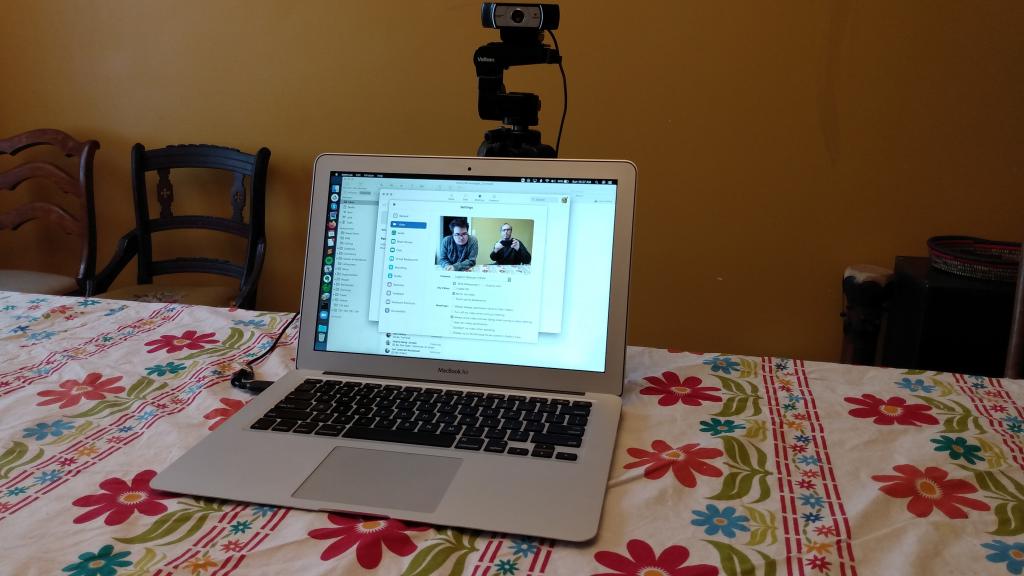
We held our second “Pen Night in the Clouds” tonight, in Zoom. We maxed out at 15 participants: 14 with video, and one person who dialed in by telephone.
For a Zoom meeting it was pleasantly non-chaotic, as was last month’s inaugural edition.
We had nothing on the agenda, which was convenient because “everyone introduce yourself and tell us what you’ve been up to” took 90 minutes. Lots of pen and ink and paper talk, but useful for many of us, I think, as a social-isolation-buster.
Some things for me to follow up on:
- Step Forward-brand tree-free paper was highly reviewed.
- Nock pen cases
- Lamy Safari 2020 in mango (with mango ink!).
- Melt wax (candle or sealing wax) into a Chapstick tube for a handy “prevent envelopes addresses with a fountain pen from running if they get wet” tool.
Our next meeting, again on Zoom, will be May 23, 2020, at an earlier start time of 4:00 p.m. Atlantic to provide interested Europeans with an easier way of attending.
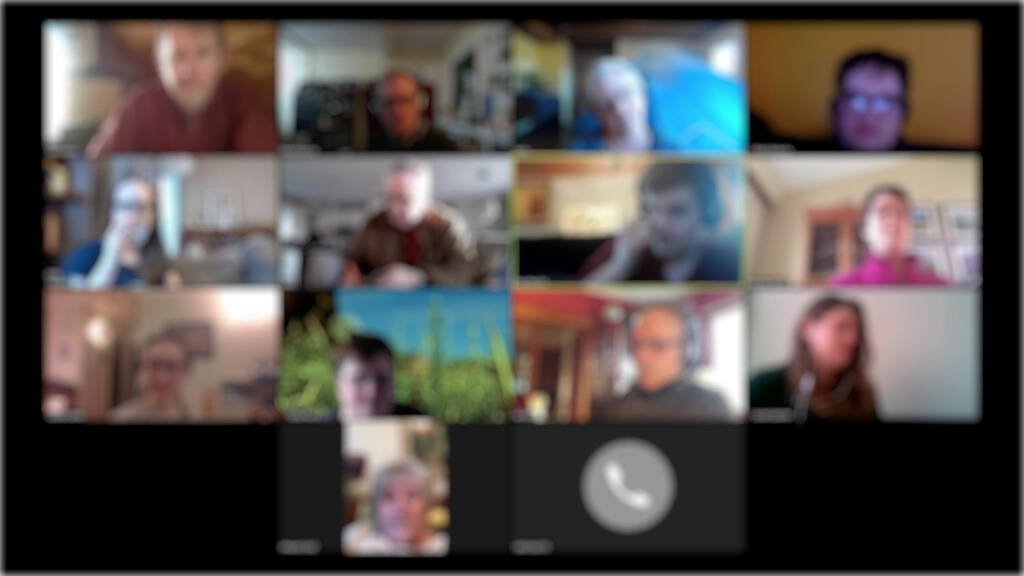
I took my bicycle off the road 138 days ago. Making my cycling season 227 days long, 62% of the year.
My friends Darcie and Peter cycled to the New Years Levees, so they’ve got me beat. But at almost two thirds of the year, that’s still a pretty long season, and it’s a lot longer than the “well, for six months of the year, you can’t bicycle” reasoning that automobile enthusiasts bring out.
For the first time this year, I did some basic spring maintenance myself: MacQueen’s has a backlog of 70 bicycles to get to before they could get to mine, and I wasn’t patient enough to wait. I oiled the chain, tightened the bolts, and even trued the back wheel, with the help of a spoke-tightening tool loaned to me by my friend Cynthia.
Oliver’s bike, and my bike, are now ready for the season. We’re about to head off on our first ride.
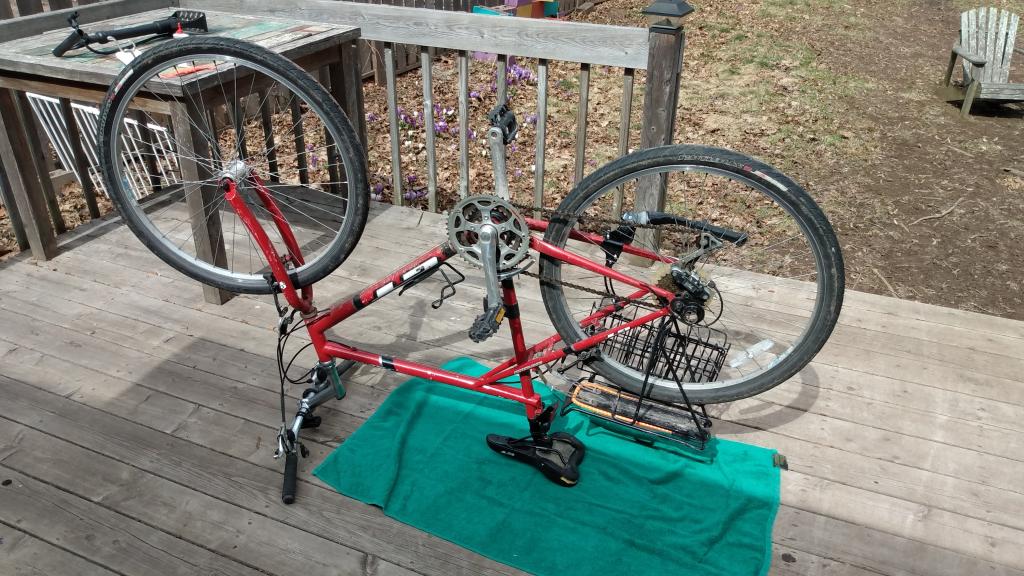
Part of the hold that the process of dying has on us is that we shy from talking about it, sharing images of it. It remains, thus, a more powerful, frightening mystery than it need be.
Looking through Catherine’s photos this morning, I found this one, which I took with her phone on January 1, 2020, the day she moved from the emergency room of the Queen Elizabeth Hospital into the PEI Palliative Care Centre.
This is the room in which Catherine died, although in this photo she’s still very much alive. Still in thrall of morphine toxicity (which explains the position of her hands, which were weaving patterns of delirium for several days), but on her way out of it and back, for a time, to us.
The chair Oliver is sitting in was the chair I slept in for the last week of her life, moved up against her bed. It’s the chair I was sitting in at the moment she died; I was holding her hand.
The sunshine coming through the window is sunshine that arrived every afternoon, through the large windows in Catherine’s room, windows that overlooked a forest, and a bird feeder.
On the shelf behind Oliver is a photo we brought from home, a photo of the happy three of us taken when Oliver was little.
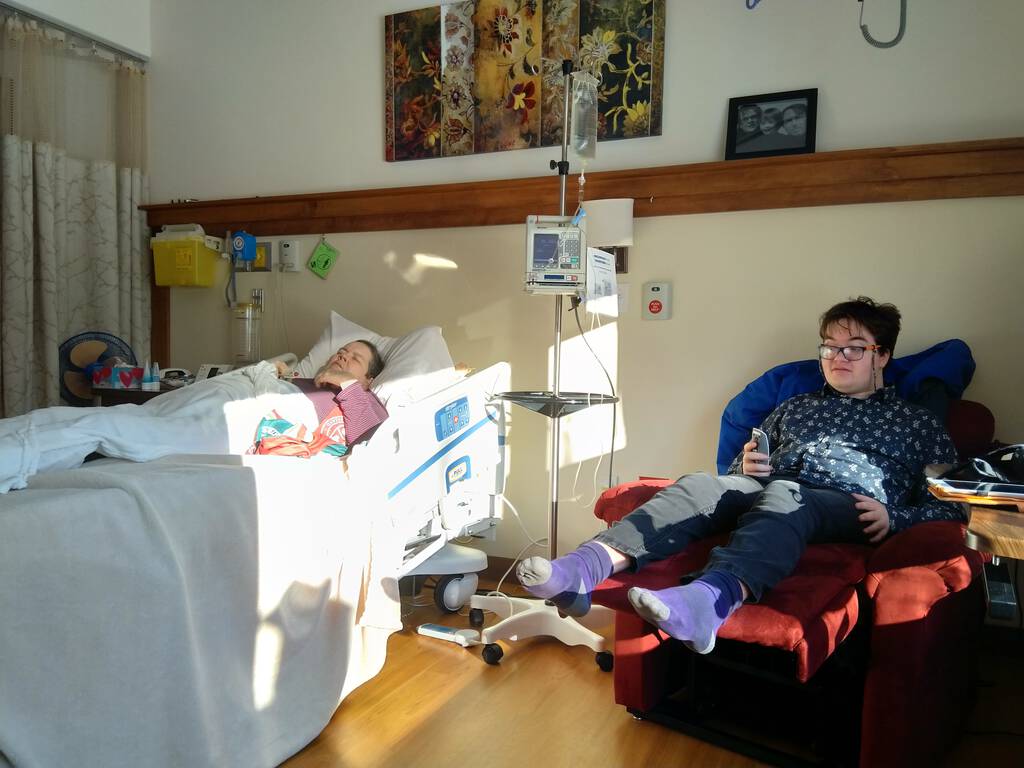
You would think that, looking at this photo three months after Catherine died, I would find it depressing, that I would wish to avert my eyes.
But it’s not. And I don’t.
This is the place we said goodbye to Catherine. Where I had my last conversations with her. Where she got to say goodbye to her nieces. And her brother and sister-in-law. And my mother. And her mother. And her son.
There is so much love in that room.
We’re holding the monthly Pen Night, for fountain pen aficionados, virtually again this month. The March meeting turned out to be a pleasant surprise, given how horrible Zoom-meetings can be, and so we’re back into Zoom again tomorrow night, Saturday, April 18, 2020, at 7:00 p.m. Atlantic.
Email me if you’d like to attend and would like the Zoom link.
My time-between-grocery-store-visits increased from 10 days (between this visit and this one) to 14 days, with a visit to Sobeys this morning.
Friday morning turned out to be a pretty good time to visit: I’ve learned that how busy the Sobeys parking lot is bears no relation to how busy the store is, so I no longer use that as a metric; instead I look for whether there’s a lineup to get in, and this morning there wasn’t.
The degree of stress that Steven commented on was very much in evidence today: we generally don’t place any demands on our fellow shoppers, and we treat it as an individual rather than a community exercise.
That’s changed now, and we need to get with the synchronized swimming; some shoppers haven’t figured this out yet, and were willfully ignoring the one-way aisle signs, engaged in extreme lollygagging, and ignoring all guidance to stay 2 m apart from everyone else. It wasn’t chaos, but it also wasn’t clockwork, and I came close, a couple of times, to pulling a “hold your horses, bucko, this is one way the other way.” But I stayed calm.
Every week I divert more of our shopping elsewhere, which is why I’ve been able to lengthen the time between the visits. I’ve been buying vegetables from Heart Beet Organics for pickup Wednesdays (and so enjoyed fresh carrots, fresh mushrooms this week), getting milk, yogurt and butter from Purity Dairy, getting a weekly delivery of meals and bread from Receiver Coffee, and, last week, I bought a side of smoked salmon from Gallants, open for takeout, so we’re good for the next couple of Saturday market simulations.
For Sunday waffles, and other baking, I’ve switched over completely from trying to keep eggs in the house to using aquafaba, a trick I learned from my vegan friends at Crafting {:} a Life last year.
It is interesting–a challenge sometimes, an opportunity other times–to be coming into my own as full-time household cook at a time when so much is changing.
On our walk to the waterfront yesterday we noticed that the parking garage at the Delta Prince Edward hotel is now protected with a semi-permanent barrier of sandbags
The hotel is closed indefinitely due the pandemic, so presumably this was installed preemptively to prevent staff from needing to be on-site in the event of heavy rain, which has been known in past to flood the basement garage.
So this is a piece of public art that testifies both to the pandemic, and also to climate change.
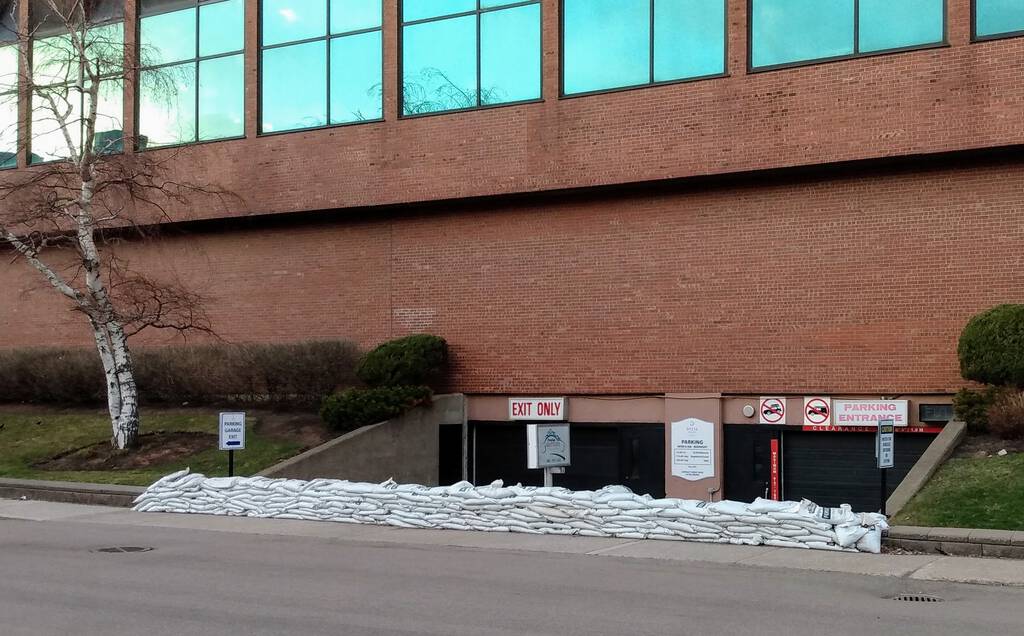
In our neighbourhood, the most obvious sign that we’re all locked inside our houses due the pandemic is that there haven’t been any cars parked on Prince Street for weeks.
On a typical Friday afternoon, you’d be unable to get a space at a parking meter between Richmond and Grafton unless you were prepared to circle the block a few times; I don’t think I’ve seen more than two cars parked on this stretch since mid-March.
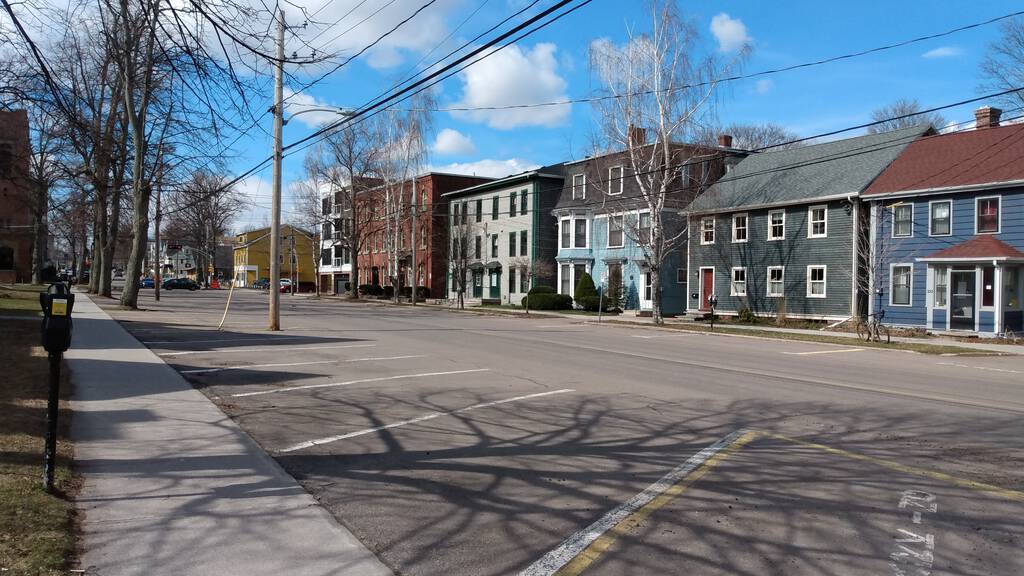
Seeing the street empty of automobiles for so long reinforces just how much of our downtown we’ve given over to them.
My friend Cindy, in an opinion piece the the Regina Leader-Post, Organizing in hard times serves the betterment of community:
Although individualism might help us stay at home alone and learn a new hobby or practise informal learning through our computers or sewing machines, by acting together we can build something sustainable and push for actions that benefit communities and build the commons in the long run. This is our challenge and our need.
The performance of a community comes from its people and actions where the collective trumps the individual. This, fortunately, has become obvious during these difficult times. But actions that prioritize economic growth over the environment and community will only lead us back to the pandemic. It’s time for actions to emphasize public ownership, solidarity and bottom-up changes. Without this, the post-pandemic will present further social and economic divisions.
My friend Lou, on Facebook, links to Well, That Unraveled Quickly from the American Institute for Economic Research:
In the meantime, we’ve seen things we never imagined possible, namely seemingly intelligent people howling for weeks for the nationalization of industry, the socialization of production, the imprisonment in our homes, the trillions in pointless spending, the unprecedented amounts of new money created by the Fed, and the countless other awful legal precedents set. The lawsuits will continue to be litigated for a decade.
The core realization we face right now is that it is not possible to stop and start an economy; nor is it possible to distinguish between essential and nonessential. The commercial society is a web in which everyone and everything is connected with everyone and everything else.
I have a diverse group of friends.
 I am
I am